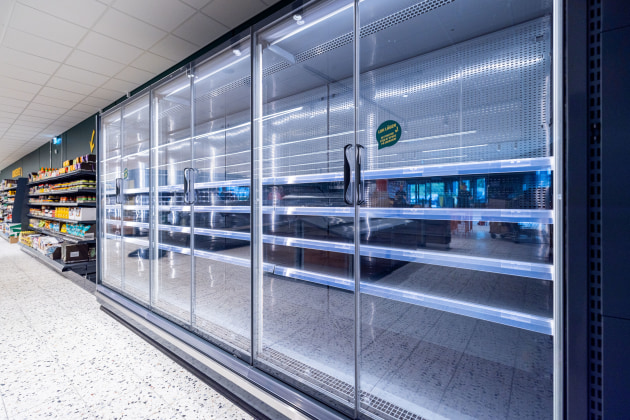Climate-friendly, efficient and loaded with automation solutions, Danfoss’ new Smart Store supermarket is providing inspiration for food retailers in a world of rising energy costs, emissions, and worsening food losses.
The newly opened Smart Store is expected to be 50 per cent more energy efficient compared to a typical supermarket with a first-generation CO2 refrigeration system and no energy efficiency solutions, and is also expected to be approximately 20-30 per cent more efficient than an equivalent local store already fitted with multiple energy efficiency solutions.
Danfoss Climate Solutions president Jürgen Fischer, said the Smart Store supermarket was developed with partners and customers to demonstrate that it was possible to build a climate friendly and super-efficient facility, using world-class heating and cooling technology.
“Our new Smart Store proves that the future is now. This supermarket is purpose-built for the world ahead of us; a world of more urbanization, larger populations, greater energy demands, a growing need for cooling, and efficient food storage,” said Fischer.
The range of new solutions in the Smart Store demonstrate the significant savings that can be achieved in supermarkets, with a typical payback time of 3-4 years. By using world-class heating and cooling technology, the new supermarket will waste less energy and reduce food waste.
The Smart Store supermarket demonstrates that it’s not only possible to design and build an energy-efficient supermarket with solutions available today, but it also makes good business sense.
Solar power is the supermarket’s primary energy source with 100 kW solar panels on the building’s roof providing green energy to support the supermarket operations.
Heat capture and reuse is also key to the energy efficiency of the supermarket with up to 90 per cent reduction in supermarket heating costs expected. Excess heat is the world’s largest untapped source of energy.

The Smart Store is fitted with state-of-the-art heat recovery units, designed to recover the waste heat from all the refrigeration systems. The recovered heat is reused to heat up the store and produce domestic hot water, with any additional heat shared with residents of the surrounding town through a district energy network.
Other initiatives such as installing doors on refrigerator and freezer cases will save around a third on energy use, while the choice of LED lighting uses up to 85 per cent less electricity than incandescent bulbs. Automation and monitoring of the store adds another layer of energy saving.
“Danfoss has reimagined what food retail stores could look like in the 21st century. For the first time, all of Danfoss’ most cutting-edge technology and energy efficient food retail solutions are being brought together into one retail site,” said Fischer.
The Smart Store supermarket will also serve as an Application Development Centre, a ‘live’ testing site for new technologies which Danfoss hope will inspire food retailers around the world to move towards zero emissions supermarkets.






